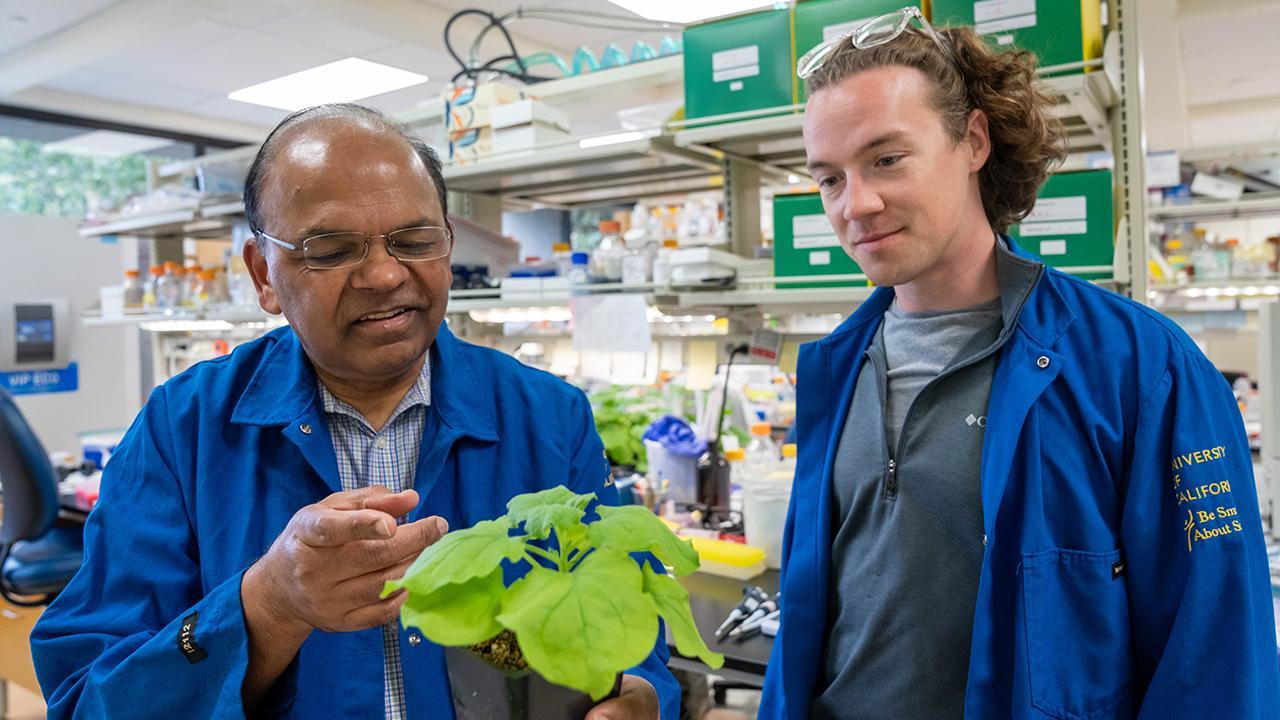
Chloroplasts Do More Than Photosynthesis; They’re Also a Key Player In Plant Immunity
New research sheds light on unique chloroplast structures 100 years after their discovery
Scientists have long known that chloroplasts help plants turn the sun’s energy into food, but a new study, led by researchers in the Department of Plant Biology, shows that they’re also essential for plant immunity to viral and bacterial pathogens.
Chloroplasts are generally spherical, but a small percentage of them change their shape and send out tube-like projections called “stromules.” First observed over a century ago, the biological function of stromules has remained enigmatic. They aid in clustering chloroplasts around the nucleus and function as conduits to transport pro-defense signals from chloroplasts to the nucleus.
In a new study, Savithramma Dinesh-Kumar, a professor and chair in the Department of Plant Biology, and Nathan Meier, a graduate student in Dinesh-Kumar’s lab, and colleagues have identified a key protein involved in stromule biogenesis during immunity. Their findings were published on October 25 in Science Advances.
Read the full story here.
